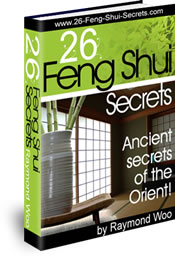Feng Shui Elements
An Introduction To Wood, Fire, Earth, Metal And Water
A carefully crafted balance of the five feng shui elements is the key to achieving harmony and balance in any space. Ideally, the five elements complement each other with no single element taking an overpowering role. Prosperity and good luck cannot be far off when earth, metal, water, fire and wood combine in a balanced and harmonious way.
Each feng shui element has unique properties and characteristics that range from colors and compass points to an association with different periods in the human lifespan.
- Wood, for example, is associated with innovation, creativity and birth. Wood’s Chinese name is Mu. This element is associated with the color green and its compass direction is the East.
- Fire, or Huo in Chinese, infuses a space with action, enthusiasm and energy and is associated with the developmental years of puberty. It must be used judiciously because of its propensity to destroy the place where it is found. Fire’s color is red and its compass direction is the South.
- Earth, or Tu, stands for steadiness, serenity and honesty and is closely associated with young adulthood. Earth’s color is yellow and the element is said to have a strong influence on real estate and inheritances.
- Metal, or Jin, symbolizes our adult years, a time in which we reap the benefits of the harvest and business success. Metal may also represent a knife or other destructive cutting edge. Not surprisingly, perhaps, Metal’s color is gold. The element’s compass point is the West.
- Water, or Shui, is the last of the five elements. Water lends its name to “feng shui”, which means water and wind. Water can be still and deep when left alone, or violent when whipped to a frenzy by the wind. Learning and the arts, as well as communication and travel, are associated with Water, which represents the years of old age. Water’s color is black and its direction is the North.
The interaction between the five feng shui elements is one of constant change. In an ideal world, water produces wood, wood feeds fire, and fire shapes the earth, which in turn forms the metal that subsequently produces water.
On the other hand, imbalance occurs when wood weighs heavy on the earth, fire melts metal, earth impedes the flow of water, or water extinguishes fire.
Seen in this way, the feng shui elements take on a symbolic character that illuminates the ebb and flow of the human condition, even for those who may not completely embrace the underlying concepts of feng shui.




